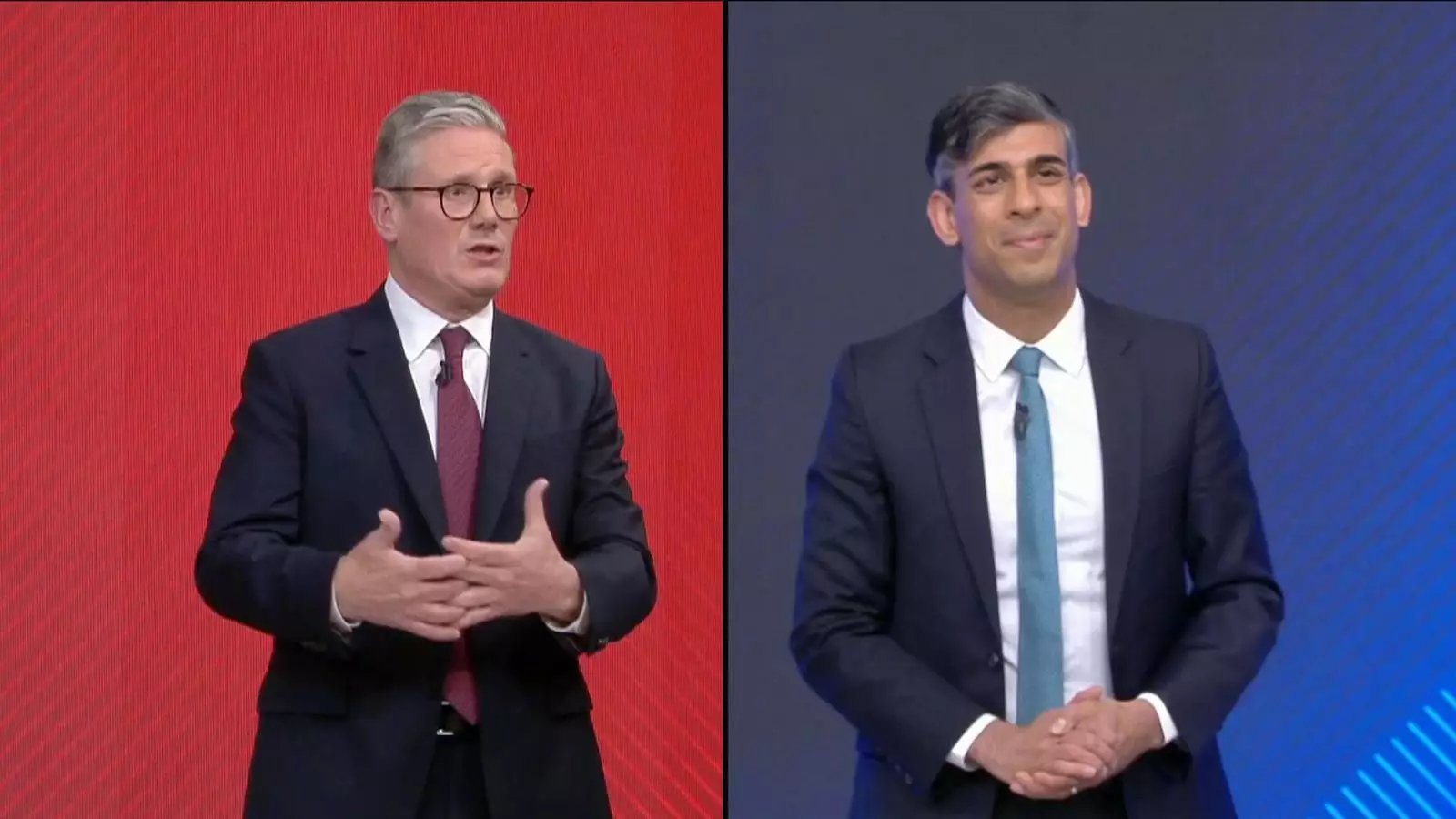The Battle for Number 10 program on Sky News presented a clear picture of the performance of Keir Starmer as the Labour leader. Throughout the event, Starmer maintained a cautious approach, sticking closely to a pre-established script on tax policies. This strategy seemed to be aimed at avoiding any potential backlash from voters regarding post-election tax increases. However, this tactic of playing it safe might not sit well with an electorate that is looking for more transparency and boldness from its leaders.
Starmer’s performance was not flawless, as highlighted by the audience’s questioning of his likability and perceived robotic demeanor. His inability to connect with the audience on a more personal level raises concerns about his ability to engage and resonate with voters on a broader scale. Furthermore, the fact that he had to backtrack on certain pledges during the event raises questions about the consistency and reliability of his policy proposals. This inconsistency could potentially erode trust in his leadership if he were to assume the position of Prime Minister.
On the other hand, Rishi Sunak faced a more challenging time during the Battle for Number 10 event. Sunak’s attempts to defend his record and explain his policy decisions were met with skepticism and criticism from both the audience and viewers. His struggles to provide clear and coherent answers to probing questions about his record raised doubts about his competency and readiness to lead the country effectively.
One of the key moments in Sunak’s performance was his failure to address the issue of rising debt and waiting lists effectively. His attempts to shift blame onto other parties and deflect responsibility did not resonate well with the audience, highlighting a lack of accountability and transparency in his approach. Moreover, Sunak’s inability to provide concrete solutions to pressing issues such as immigration and healthcare further undermined his credibility as a potential Prime Minister.
The polling verdict following the Battle for Number 10 event was overwhelmingly in favor of Keir Starmer, with a significant majority of viewers perceiving him as the stronger candidate compared to Rishi Sunak. This result underscores the challenges and shortcomings faced by Sunak in presenting a compelling vision and plan for the country’s future. The fact that even former Tory voters expressed preference for Starmer raises concerns about the effectiveness of the Conservative Party’s campaign strategy and messaging.
Looking ahead, it is evident that Rishi Sunak will need to reassess his approach and messaging to regain momentum and credibility in the eyes of voters. The missed opportunity to make a transformative impact during the Battle for Number 10 event highlights the urgent need for Sunak to articulate a clear and coherent vision for the country’s future. Failure to do so could result in further setbacks and loss of support from key voter demographics.
The Battle for Number 10 provided valuable insights into the respective performances of Keir Starmer and Rishi Sunak as potential leaders of the country. While Starmer demonstrated a cautious and scripted approach that may lack authenticity, Sunak struggled to connect with voters and address concerns about his record effectively. Moving forward, both leaders will need to address these weaknesses and pivot their strategies to appeal to a broader audience and inspire confidence in their leadership capabilities.


Leave a Reply